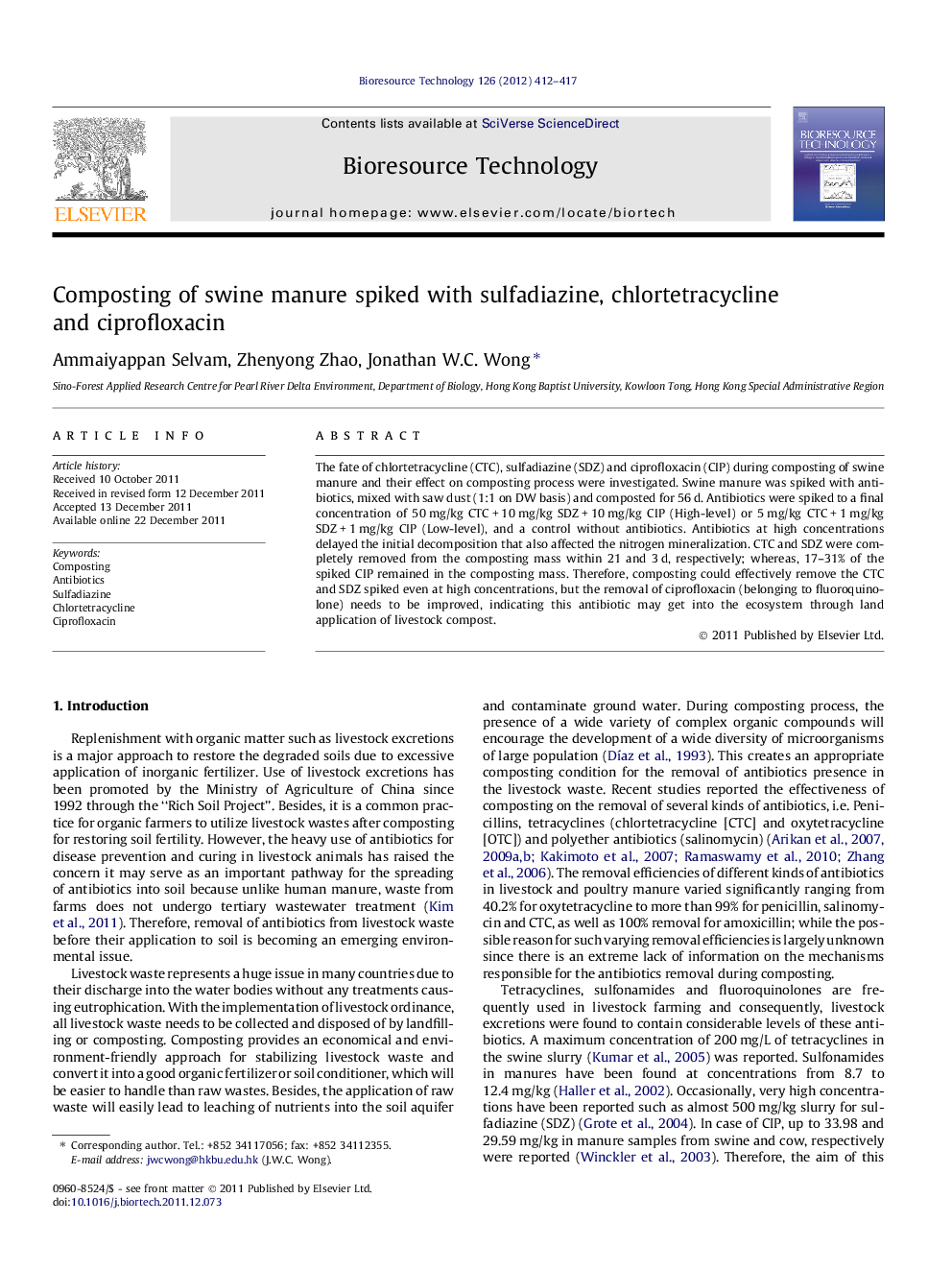| Article ID | Journal | Published Year | Pages | File Type |
|---|---|---|---|---|
| 681301 | Bioresource Technology | 2012 | 6 Pages |
The fate of chlortetracycline (CTC), sulfadiazine (SDZ) and ciprofloxacin (CIP) during composting of swine manure and their effect on composting process were investigated. Swine manure was spiked with antibiotics, mixed with saw dust (1:1 on DW basis) and composted for 56 d. Antibiotics were spiked to a final concentration of 50 mg/kg CTC + 10 mg/kg SDZ + 10 mg/kg CIP (High-level) or 5 mg/kg CTC + 1 mg/kg SDZ + 1 mg/kg CIP (Low-level), and a control without antibiotics. Antibiotics at high concentrations delayed the initial decomposition that also affected the nitrogen mineralization. CTC and SDZ were completely removed from the composting mass within 21 and 3 d, respectively; whereas, 17–31% of the spiked CIP remained in the composting mass. Therefore, composting could effectively remove the CTC and SDZ spiked even at high concentrations, but the removal of ciprofloxacin (belonging to fluoroquinolone) needs to be improved, indicating this antibiotic may get into the ecosystem through land application of livestock compost.
► Chlortetracycline and sulfadiazine were completely removed during swine manure composting. ► Ciprofloxacin was not completely removed and 17–31% was persistent after 56 d of composting. ► Persistence of ciprofloxacin during composting is being reported for the first time. ► Antibiotics affected the organic decomposition during the initial stage of composting. ► Nitrogen transformation was affected by the antibiotics that affected the nitrogen content of the composts.
